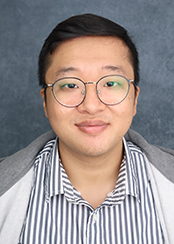
Dr. Fatapour received her PhD in biomedical engineering from the University of California, Irvine, where her research focused on developing machine learning models to assess individual cancer risk. She also holds an MS in biomedical engineering from UC Irvine and an MS in materials science and engineering from Amirkabir University of Technology, where she completed her undergraduate studies in the same field. Her research focuses on leveraging machine learning, AI, and data science to advance healthcare, with a particular emphasis on precision medicine, health informatics, cancer research, and improving patient outcomes through innovative technology solutions.

Dr. Liu served as a research bioinformatician in the BDSSR. She earned a master's degree in bioinformatics from George Washington University and completed her doctorate by applying multi-omics analysis to advance the understanding of potential treatments for Parkinson's disease using a mouse model. She is an expert in cutting-edge next-generation sequencing dataset analysis, with a focus on single-cell analysis. She brings an extensive background and proficiency in the analysis of diverse multi-omic datasets, including scATAC-seq, scRNA-seq, and spatial transcriptomics.

Dr. Zietz is a research data scientist in the lab. He completed his PhD in May 2024 at Columbia University's Department of Biomedical Informatics. His research interests include developing new statistical and machine learning methods for large-scale genetic studies and observational health data science.

Dr. Friedrich earned her MD in Mexico and holds an MS in palliative care and chronic diseases. Her research focuses on qualitative data analysis, exploring racial disparities in healthcare and urological diseases. Dr. Friedrich investigates the role of diet, lifestyle, and obesity in the development and progression of prostate cancer, as well as cardiovascular events linked to oncologic treatments, particularly within the field of cardio-oncology. She aims to enhance the understanding of better practices and tailored strategies for diverse patient populations.

Dr. Nguyen is a postdoctoral scientist specializing in the genetic drivers of Y chromosome loss and its implications for cancer prognosis. Holding a PhD in mathematical, computational and systems biology from the University of California, Irvine, and a BA in applied mathematics from California State University, Fullerton, Dr. Nguyen has a strong foundation in computational analysis and systems biology. With a keen interest in translating research to the biotech and pharmaceutical industries, she aims to bridge the gap between computational biology and therapeutic development. Outside of work, she enjoys practicing yoga.

Dr. Samaan received his MD from the Keck School of Medicine at the University of Southern California in 2019 and completed his internal medicine residency at Cedars-Sinai in 2022. He is currently a third-year gastroenterology and hepatology clinical fellow at Cedars-Sinai in the research track and a second-year graduate student in the MSCR program at UCLA. His clinical interests include the medical, endoscopic, and surgical management of obesity. His primary research interest is the development, validation, and application of artificial intelligence tools for both patients and physicians.

Apoorva holds an MS degree in Biostatistics from Columbia University. Her research is broadly focused on leveraging deep learning and machine learning to address critical challenges in healthcare and biomedicine. She currently specializes in applying natural language processing and deep learning techniques to drug discovery, drug-drug interaction, and clinical trial optimization studies.

Aditi holds an MS in computer science from the University of New Orleans, where she developed machine learning and computer vision models to identify structural faults in levee systems for the City of New Orleans and the U.S. Army Corps of Engineers. She later specialized in deep learning applications for biomedical and multi-omics data at Louisiana State University Health Sciences Center. Currently, her research focuses on leveraging machine learning to analyze single-cell data, with a particular interest in predicting toxic drug signatures. Her expertise lies at the intersection of machine learning and bioinformatics.

Jose obtained his MS in artificial intelligence from Utrecht University. He conducted his MS thesis at Harvard Medical School and Massachusetts General Hospital, focusing on developing AI techniques for detecting fractures and tumors in medical images. His expertise lies in applying machine learning and deep learning models to address problems in biomedicine and biochemistry, particularly in large language models (LLMs). Currently, Jose's research involves predicting adverse reactions using patient EHRs and leveraging chemical and biological drug properties to identify side effects.

Sophia received her MS in computer science and BS in symbolic systems, both from Stanford University. Her current research focuses on precision health and AI applications in translational biomedicine. Her interests include predicting drug interactions and side effects, developing novel strategies for precision dosing and investigating fundamental problems in AI modeling of proteins and genomic data.

Kevin earned his MS in applied data science from the University of Southern California. Formerly a Research Data Analyst at City of Hope, Kevin specialized in developing pipelines for next-generation sequencing and SNP genotype data analyses. His expertise extends to the application of machine learning and deep learning techniques in various forms of biological data. Kevin's current research interest is pathology report information extraction, specifically extracting valuable insights such as TNM staging and ICD-O codes from pathology reports. Notably, Kevin plans to incorporate large language models to leverage generative artificial intelligence in solving classification and clustering tasks in biomedical data science research.

Jacob received his BS in statistics with minors in mathematics and computer science from the University of Pittsburgh in 2023. His current interests include natural language processing, interpretable machine learning, and data mining for extracting health-related information from social media and forums.
